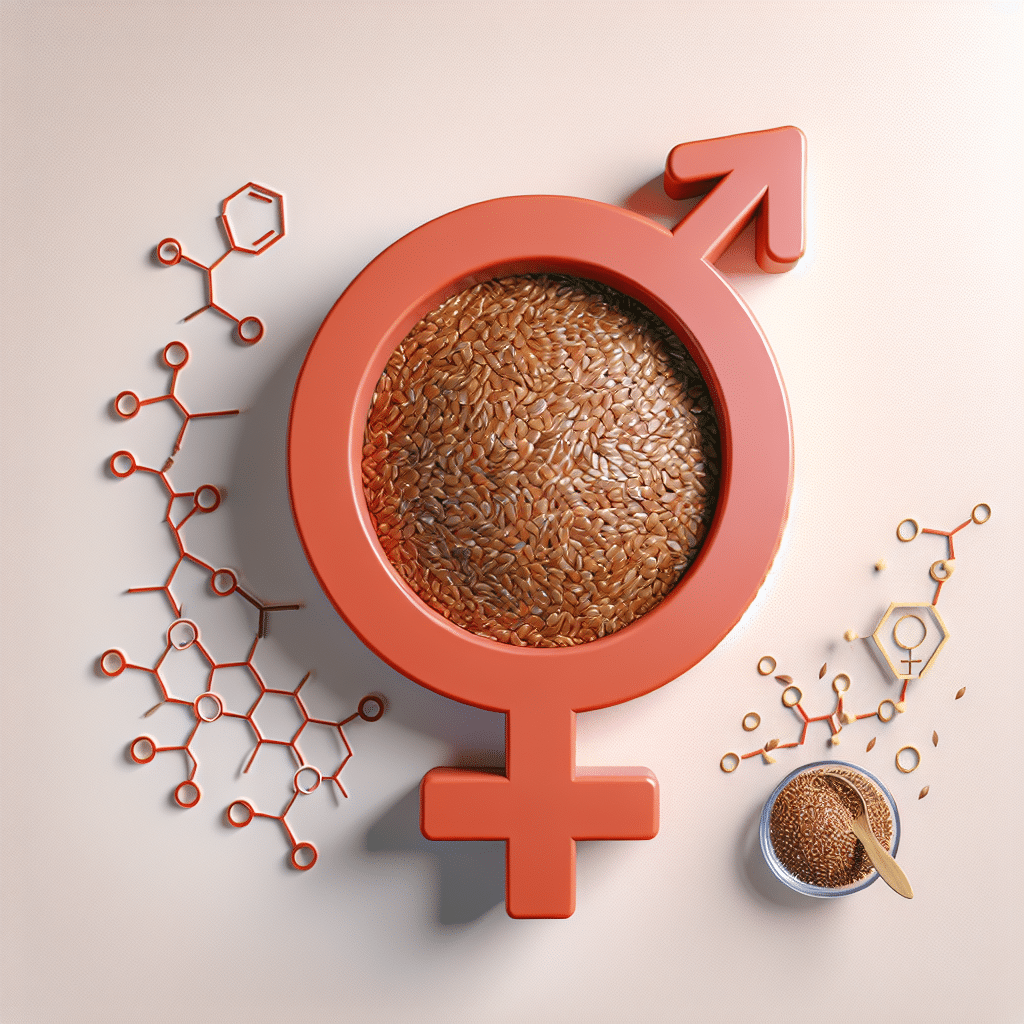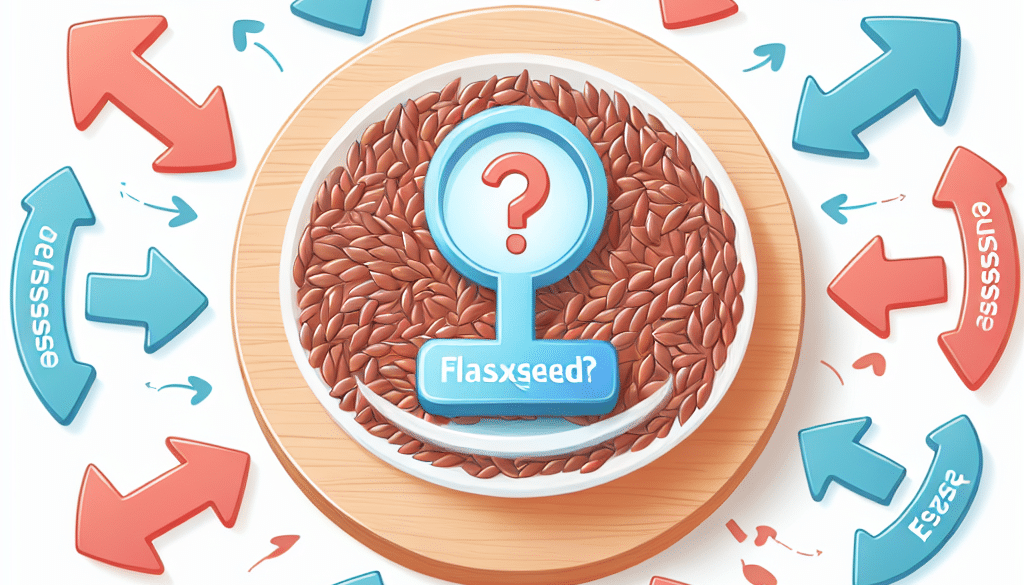Does Flaxseed Increase Estrogen?
-
Table of Contents
- Flaxseed and Estrogen: Understanding the Connection
- What is Flaxseed?
- Flaxseed’s Phytoestrogen Content
- Does Flaxseed Increase Estrogen?
- Research Findings on Flaxseed and Estrogen
- Factors Influencing Flaxseed’s Effect on Estrogen
- Health Implications of Flaxseed Consumption
- Considerations for Specific Groups
- Conclusion: Balancing Benefits and Concerns
- Explore ETprotein’s Protein Products
Flaxseed and Estrogen: Understanding the Connection

Flaxseed, a nutrient-rich seed, has been a part of human diets for thousands of years. Known for its health benefits, flaxseed is often considered a superfood due to its high content of omega-3 fatty acids, fiber, and lignans. However, its potential effects on estrogen levels have sparked both interest and concern among health-conscious individuals. This article delves into the science behind flaxseed and its relationship with estrogen, providing insights into whether flaxseed truly increases estrogen levels in the body.
What is Flaxseed?
Flaxseed, also known as linseed, comes from the flax plant (Linum usitatissimum). It is available in two main varieties: brown and golden, both of which have similar nutritional profiles. The seeds can be consumed whole, ground into flaxseed meal, or pressed to extract flaxseed oil. They are a rich source of dietary fiber, antioxidants, and alpha-linolenic acid (ALA), a type of omega-3 fatty acid.
Flaxseed’s Phytoestrogen Content
One of the key components of flaxseed that has drawn attention is its high concentration of lignans. Lignans are a group of chemical compounds found in plants, and flaxseed contains up to 800 times more lignans than other plant foods. These lignans are classified as phytoestrogens, which are plant-derived compounds that can mimic the hormone estrogen in the body.
Does Flaxseed Increase Estrogen?
The question of whether flaxseed increases estrogen levels is complex. Phytoestrogens like those found in flaxseed can bind to estrogen receptors in the body, potentially influencing estrogen activity. However, their impact can vary depending on the existing levels of estrogen and the specific type of estrogen receptor they bind to.
Research Findings on Flaxseed and Estrogen
Studies on flaxseed and its effects on estrogen levels have shown mixed results. Some research suggests that flaxseed may have an estrogenic effect, while other studies indicate that it could act as an anti-estrogen. The discrepancy in findings may be due to differences in study design, population, dosage, and the form of flaxseed used.
- A study published in the Journal of Clinical Oncology found that flaxseed supplementation reduced tumor growth in breast cancer patients, suggesting an anti-estrogenic effect.
- Conversely, a study in the Journal of Nutrition showed that postmenopausal women who consumed flaxseed had increased levels of serum lignans and a slight increase in estrogen levels.
- Another study indicated that flaxseed might have a dual role, acting as an estrogen agonist or antagonist depending on the hormonal environment of the individual.
Factors Influencing Flaxseed’s Effect on Estrogen
The impact of flaxseed on estrogen levels may be influenced by several factors, including:
- The individual’s hormonal status (premenopausal, postmenopausal, or having estrogen-sensitive conditions)
- The amount and form of flaxseed consumed
- The presence of gut bacteria that can metabolize lignans into enterolignans, which have a stronger phytoestrogenic effect
Health Implications of Flaxseed Consumption
Despite the ongoing debate about flaxseed’s influence on estrogen, its consumption is associated with various health benefits:
- Cardiovascular health: Flaxseed’s omega-3 content can help reduce inflammation and improve heart health.
- Digestive health: The high fiber content aids in digestion and can help prevent constipation.
- Cancer prevention: Some studies suggest that flaxseed may help reduce the risk of certain cancers, including breast and prostate cancer.
Considerations for Specific Groups
While flaxseed is generally considered safe for most people, certain groups should exercise caution:
- Women with hormone-sensitive conditions such as breast cancer should consult with their healthcare provider before consuming flaxseed.
- Pregnant and breastfeeding women should also seek medical advice due to the potential hormonal effects.
Conclusion: Balancing Benefits and Concerns
In conclusion, the relationship between flaxseed and estrogen is not straightforward. While flaxseed contains phytoestrogens that can interact with estrogen receptors, its overall effect on estrogen levels in the body can vary. The current body of research suggests that flaxseed may have both estrogenic and anti-estrogenic properties, depending on individual factors and the context of consumption.
For those considering adding flaxseed to their diet, it is important to weigh the potential health benefits against any concerns related to estrogen levels. Consulting with a healthcare provider can help determine if flaxseed is appropriate for your specific health needs and circumstances.
Explore ETprotein’s Protein Products
If you’re looking for high-quality protein sources to complement your diet, consider ETprotein’s range of organic bulk vegan proteins. Their products, including organic rice protein, pea protein, and various seed proteins, are non-GMO, allergen-free, and characterized by a neutral taste. ETprotein’s offerings cater to a diverse range of industries and dietary preferences, ensuring that you can find the right protein solution for your needs.
About ETprotein:
ETprotein, a reputable protein and L-(+)-Ergothioneine (EGT) Chinese factory manufacturer and supplier, is renowned for producing, stocking, exporting, and delivering the highest quality organic bulk vegan proteins and L-(+)-Ergothioneine. They include Organic rice protein, clear rice protein, pea protein, clear pea protein, watermelon seed protein, pumpkin seed protein, sunflower seed protein, mung bean protein, peanut protein, and L-(+)-Ergothioneine EGT Pharmaceutical grade, L-(+)-Ergothioneine EGT food grade, L-(+)-Ergothioneine EGT cosmetic grade, L-(+)-Ergothioneine EGT reference grade and L-(+)-Ergothioneine EGT standard. Their offerings, characterized by a neutral taste, non-GMO, allergen-free attributes, with L-(+)-Ergothioneine purity over 98%, 99%, cater to a diverse range of industries. They serve nutraceutical, pharmaceutical, cosmeceutical, veterinary, as well as food and beverage finished product distributors, traders, and manufacturers across Europe, USA, Canada, Australia, Thailand, Japan, Korea, Brazil, and Chile, among others.
ETprotein specialization includes exporting and delivering tailor-made protein powder and finished nutritional supplements. Their extensive product range covers sectors like Food and Beverage, Sports Nutrition, Weight Management, Dietary Supplements, Health and Wellness Products, and Infant Formula, ensuring comprehensive solutions to meet all your protein needs.
As a trusted company by leading global food and beverage brands and Fortune 500 companies, ETprotein reinforces China’s reputation in the global arena. For more information or to sample their products, please contact them and email sales(at)ETprotein.com today.












